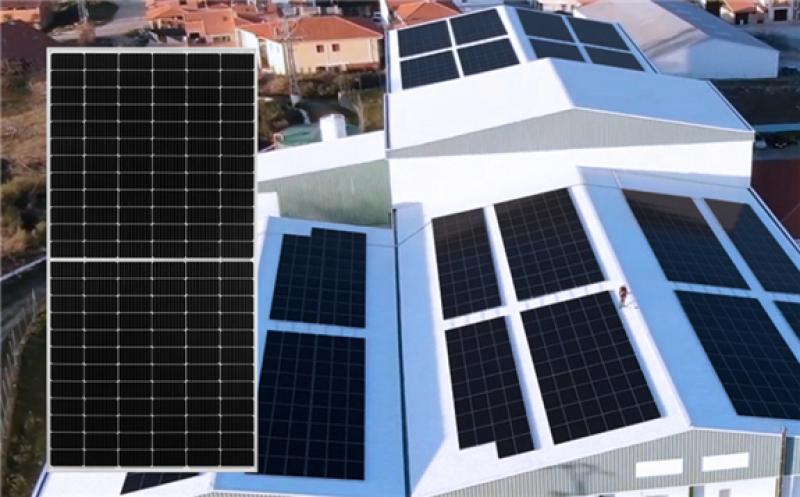Sharp today announces the addition of a new 440W monocrystalline silicon photovoltaic (PV) panel to its half-cut cell portfolio.

Available today, the NU-JD440 has a module efficiency of 19.9% and uses 144 M6 wafer size half cells. This decreases the balance-of-system costs per watt-peak installed across the whole BOS component range, providing customers with lower levelized costs of electricity (LCOE) and a higher return on investment.
The new module features 9 BB (multi busbar) technology using round ribbons which increases the power gain from each cell and making them less sensitive to microcracks, offering higher module reliability.
A low temperature coefficient of -0.347%/°C for the power output ensures higher performance at high environmental temperature, which becomes increasingly important due to climate change and the resulting rise in temperatures.
In addition, the NU-JD440 module uses 1,670mm cables which enable trouble-free wiring in landscape installations and also allows for leapfrog wiring when installing in portrait, helping to further reduce system costs.
All Sharp half-cell modules have three small junction boxes instead of just one, each fitted with one bypass diode. These junction boxes are transferring less heat to the cells above and in turn boost the longevity of the panels and the overall performance of the system.
Jens Meyer, Manager Product Engineering, Sharp Energy Solutions Europe said: “We are pleased to expand our half-cut cell portfolio with a higher wattage size module of 440W. The NU-JD440 reduces the levelized cost of energy across various applications. With our regularly updated product portfolio, our team based in Germany and services offered across Europe, Africa and Middle East our customers can always count on maximized product and service value”
The safety, quality and durability of the panel has been recognised with IEC seals (IEC61215 and IEC61730). The modules have been rigorously tested for compliance with international standards and endurance under extreme conditions, passing tests for ammonia, salt mist, sand and PID resistance.